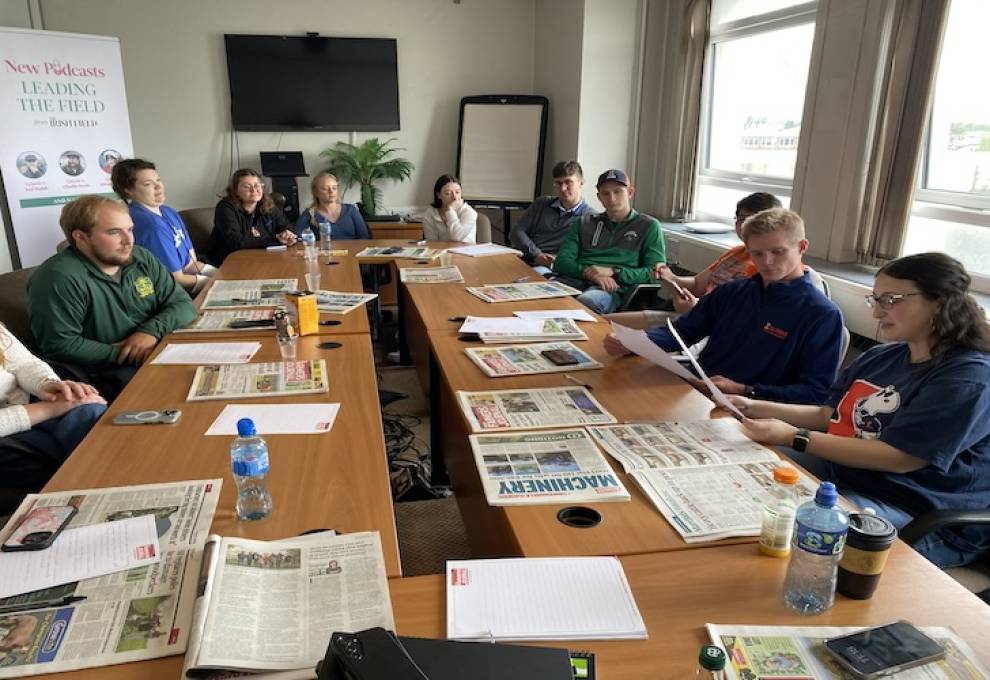
Whenever Canada’s agri-food sector squares up to optimize its competitive advantage for exports, quality almost always comes first. Quality, rather than quantity or price, helps us compete alongside some of the world’s most successfully branded agri-food sectors.
And when it comes to quality, among the best of them is Ireland.
At just over 84,000 square kilometres, the Green Isle is only about one-tenth bigger than New Brunswick. Size-wise, that hardly makes a dent in global statistics.
But when it comes to food exports, Ireland is a worldwide superstar. Irish food – particularly beef, butter, cheese, alcohol and snacks (especially potato chips) is magnificently marketed. It’s everywhere, and renowned for quality by brand names such as Kerrygold, Guiness, Bailey’s and Taytos.
“We punch above our weight,” says David Markey, former publisher of Dublin-based IFP Media, one of the country’s leading agriculture and trade media houses. “That’s always been the mantra of Ireland.”
The country’s agri-food marketing success stems from the entire supply chain buying into that feisty mantra. Origin Green, Ireland's national food and drink sustainability program, unites government, the private sector (more than 300 leading food and drink companies), 77,000 producers (including 70 per cent of the country’s horticulture growers), and scores of food service and retail. The program – which claims to be unique in the world -- enables the agri-food industry to set and achieve measurable sustainability targets. On-farm assurance assessments are administered by Bord Bia, the Irish food board.
So even when specific sectors hit a snag, like they did in 2013 when unscrupulous suppliers there switched beef for horsemeat, Ireland’s reputation ultimately emerged intact.
The system is working very well. Last year, despite worldwide economic turmoil, the value of Irish food, drink and horticulture (particularly mushrooms) exports grew by five per cent to a record 17 billion Euros. Minister for agriculture, food and the marine, Charlie McConalogue, was understandably chuffed.
“Our food companies, our farmers, fishers, and food and drink producers have, at each stage of the production cycle, contributed to the agri-food sector’s performance in 2024,” he said. “I know they will continue to do so in the future, underpinned by the strategic insight, marketing and promotion support provided by Bord Bia.”
Dublin-based Bord Bia is key to the country’s marketing success. Fueled by an annual budget of nearly 60 million Euros, Bord Bia is mandated to support the national and international ambitions of Irish food, drink and horticulture. Bord Bia was established in 1994 by the Irish parliament, bringing together the Irish Meat and Livestock Board and food promotion activities of the Irish Trade Board. In 2004, responsibility for developing the Irish horticulture industry was added to its mandate, followed by seafood in 2009.
As part of its domestic program, Bord Bia sponsors a huge five-day consumer-facing gardening festival in Dublin called Bord Bia Bloom, which drew 100,000 visitors this past June. Along with 13 of my agricultural communications students from the University of Illinois, enrolled in a 10-day study abroad program to Ireland to learn about the country’s agri-food marketing prowess, we were among this year’s crowd, guests of the organizers.
Earlier in the week we’d visited Irish farms that were part of Bord Bia’s assurance program. Participants we met were not necessarily pro-government. But they were united in understanding the need for quality and for explaining the agri-food to visitors like us. So were our hosts, the University College Dublin’s agriculture college, Agriland (one of Ireland’s leading agricultural media) and multinational animal health company Alltech, which has Irish roots and markets as well as any company on the planet.
Yet in Ireland, like every other country, communicating about agri-food is a job that’s never finished. Despite Ireland’s relatively small size, our hosts told a familiar tale about food production being a mystery to more and more people. But everyone understands quality, and if that’s your sector’s foundation, you already have their attention.

